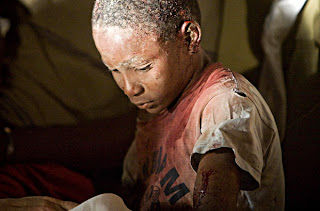
Photo by: United Nations Development Programme
The 7.0 magnitude earthquake that hit Haiti in Jan 12, left a death toll estimated to exceed 100,000, leaving more than two million Haitians homeless.
Rescue teams from different countries are arriving to Port-au-Prince, but the access to the city and the affected areas is too difficult. However certain organizations based in other areas of Haiti have been mobilizing victims to treat them in their hospitals and field hospitals.
Many organizations already have websites to make money donations, however we better be careful, because some people are taking advantage of the situation and scamming people. The safest is to donate to well known organizations listed in CNN impact, like the one I personally have been following and supporting for a couple of years, Partners in Health (PIH).
Partners in Health (PIH) was co founded by Doctor Paul Farmer and Ophelia Dahl 25 years ago, and has been providing health services to poor Haitians in the Central plateau and other areas.
With more than 100 doctors and 600 nurses and auxiliaries Haiti, PIH is currently trying to set field hospitals in Port-au-Prince and mobilizing people from Port-au-Prince to safe areas where they can receive healthcare.
Though the decades the programs of PIH have successful decreased chronic diseases like AIDS and tuberculosis in the areas where they work, with community-based care that relies on village health workers who are part of their local partner Zamni Lasante (Partners in Health in creole).
This model has been reproduced in other countries like Russia, Peru and Guatemala after its success in Haiti. To learn more about Paul Farmer, Ophelia Dahl and their mission with Partner in Health, check http://www.pih.org/home.html
.
As for material donations, hospitals do not have supplies. Not even basic things like band-aids or aspirins, said co-founder of the American NGO Partners in Health (PIH) Ophelia Dahl to NPR. So any type of donations could help Haitians, however because of accessibility issues, monetary donations could be more efficient since Haiti based NGOs know the channels to get aid to the country.
Other organizations you can donate to (CNN impact list):
Providing Basic Needs:
• American Red Cross
• CARE
• United Nations Foundation/CERF
• World Vision
• UNICEF USA
• International Relief Teams
• Save the Children
• Catholic Relief Services
• Samaritan's Purse
• American Jewish World Services
• Clinton Foundation
• Yéle Haiti
• World Concern
• Mercy Corps
• Operation Blessing International
• Mercy & Sharing
• Oxfam America
• International Rescue Committee
• United Way Worldwide
• Episcopal Relief & Development
• Evangelical Lutheran Church in America
• Love a Child
• Project Hope
Providing Shelter:
• Shelterbox
• Habitat for Humanity International
Providing Medical Aid:
• Direct Relief International
• International Medical Corps
• Medical Teams International
• Doctors Without Borders
• Operation USA
• MAP International
• World Health Organization
• Americares
• Project Medishare
• Partners in Health
Providing Food:
• World Food Programme
• The Salvation Army
• Compassion International
• Food for the Poor
• World Water Relief
Organizations accepting international currencies:
• The International Committee of the Red Cross
• UK: The Disasters Emergency Committee
• Oxfam Great Britain
• British Red Cross
• The French Red Cross


